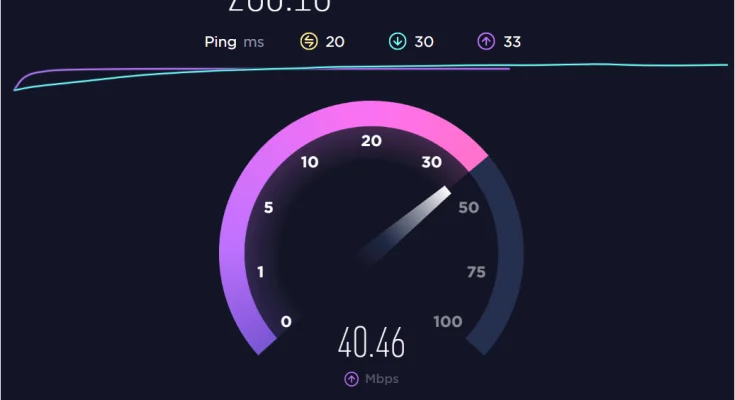The number of Wi-Fi connected devices used by Americans has increased by more than 100% in the last ten years. When you stream HD videos or play online games while conducting video conference calls on several devices simultaneously you will need faster internet speeds for best results.
High-speed internet allows for uninterrupted video conferences and quick file transfers. When calculating the best internet speed for your needs analyze how many users will access Wi-Fi/Wi-Fi regularly and take into account their regular online activities.
Easy Communication
The term “fast internet” varies by household but usually means adequate bandwidth to support multiple people on Wi-Fi at once without any connectivity problems. Most households will find smooth Wi-Fi service when they have internet speeds that reach at least 25Mbps.
Users who watch HD videos and play online games need more bandwidth so it’s best to choose an internet service provider with speeds of 100Mbps or higher for home use. You will have adequate bandwidth to work from home while watching TV shows and participating in video conferences with clients.
Check your region’s internet speeds by inputting your ZIP code here. Keep in mind that although providers advertise certain bandwidth limits as maximum speeds your actual internet speed will generally be less than these maximum values. One megabit (Mbps) translates to eight megabytes (MB).
Faster Streaming
Households which use the internet to stream videos and play online games benefit from faster download speeds while 25 Mbps connections strike the right balance for most households between too fast and too slow.
A higher-speed internet plan becomes necessary when multiple devices use the network or heavy internet usage occurs. Families who regularly stream 4K videos and engage in online gaming competitions need internet plans with upload/download speeds of 100 Mbps or more.
These plans advertise gigabit speeds that reach up to 8,000 Mbps while delivering lightning-fast rates for both uploading and downloading data. This service option works best for homes that must transfer large files rapidly while connecting numerous smart home devices at once including those that use smart home hubs or link several smart home devices to multiple hubs at the same time. The cost of gigabit fiber-optic connections offered by providers is usually higher than other options. Households benefit more from gigabit internet when their bandwidth demands become substantial.
Faster Downloads
When you have a fast internet connection download speeds go up resulting in improved online experiences and reduced lag during video calls and software updates downloads.
Fast download speeds in internet services enable you to bypass data limits while supporting multiple devices to function together without performance loss. Choose cable or fiber internet providers that deliver speeds above 200 Mbps when you need maximum download performance.
Assess your internet speed needs based on your individual usage patterns. Working from home or having a large household demands higher internet speeds which should start at 100 Mbps minimum; gigabit internet offers equal upload and download speeds essential for seamless gaming and uninterrupted video streaming.
Faster File Transfer
A faster internet speed improves file transfer processes while various websites offer tools that analyze data transfer rates and performance.
The greater the number of people and devices in your household the faster internet speed you need. Working from home and video gaming in your family require 100 Mbps internet speed or higher to ensure smooth operations.
Symmetrical download and upload speeds in fiber internet connections deliver top-tier speed which allows for uninterrupted streaming and downloading while working. Some internet plans provide gigabit speeds which are ideal for households that depend on high-bandwidth tasks because they enable large file transfers while maintaining connection throughout the day.




